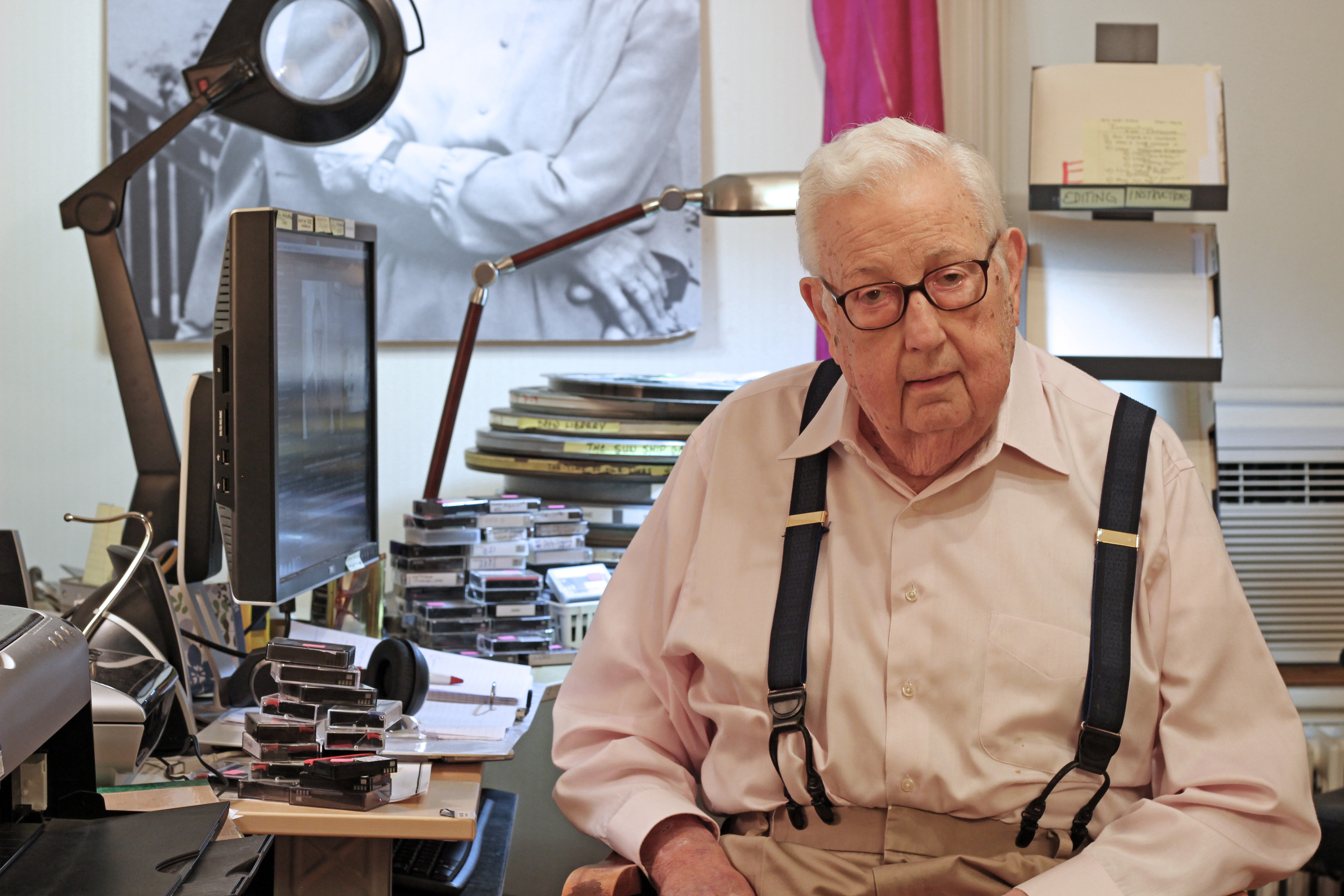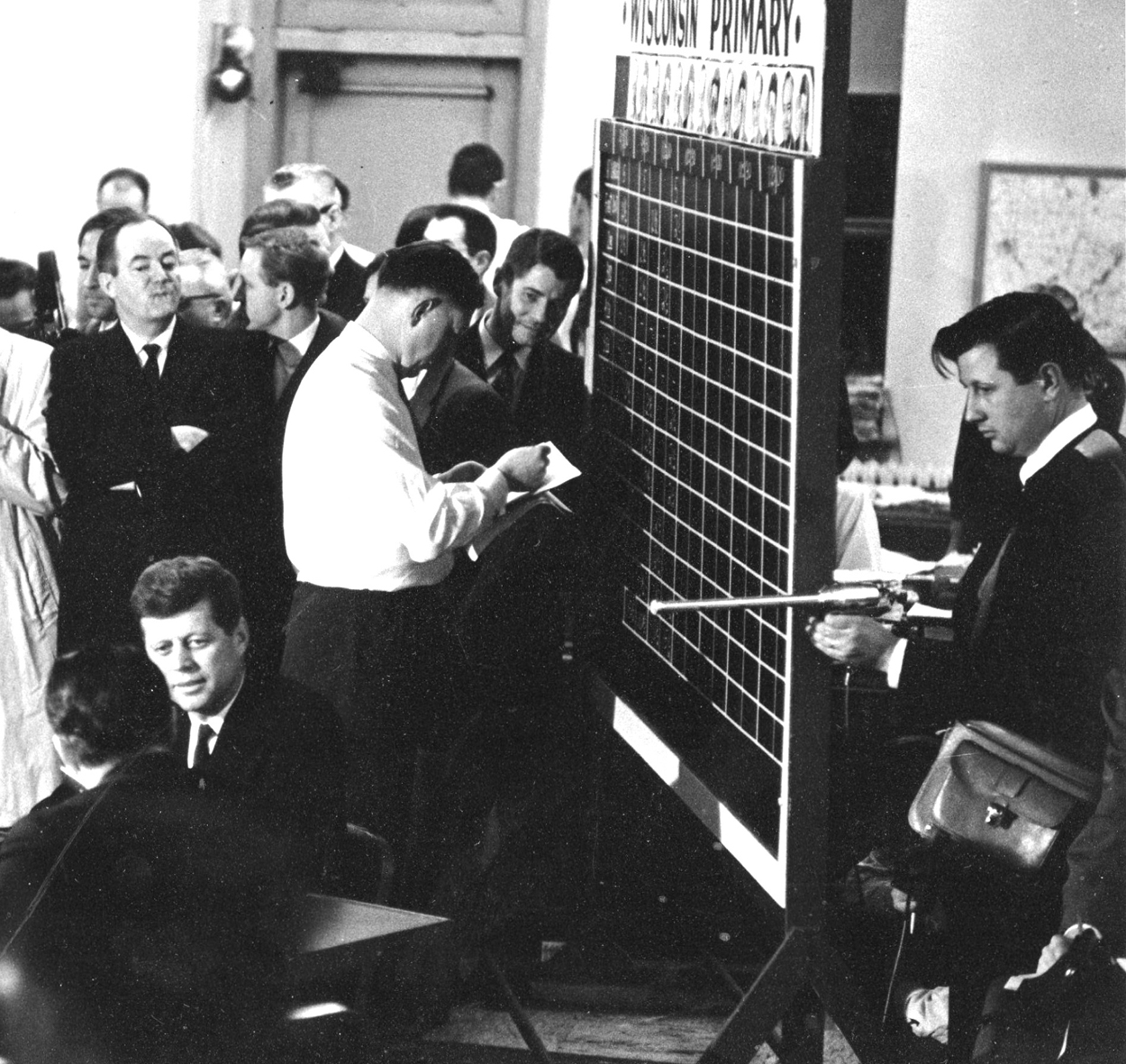Documentary filmmaker Robert L. Drew, a father of American cinéma vérité, died today at his home in Sharon, Connecticut. He was 90 years old.
Drew and his associates pioneered a new kind of reality filmmaking in the early 1960s that is now a staple of the documentary form. Drew made more than 100 films over his 50-plus-year career, many on social issues, politics, and the arts.
“No filmmaker has changed his branch of cinema more drastically, enduringly, or quietly than did Robert Drew,” wrote Richard Brody, a movie critic for The New Yorker. Brody dubbed Drew “the Godfather of Cinéma Vérité.”
Drew’s entire collection is being preserved by the Archive of the Academy of Motion Picture Arts and Sciences, of which he was a member. Two of Drew’s films are in the Library of Congress’ National Film Registry. His list of honors includes the Cannes Film Festival Special Jury Prize, the International Documentary Association Career Achievement Award, an Emmy Award from the National Academy of Television Arts and Sciences, First Prizes in the Venice Film Festival, 19 Cine Golden Eagles, the Flaherty Award, and the Dupont-Columbia Best Documentary award.
Drew was a Life Magazine correspondent and editor, as well as a former WWII fighter pilot, when he formed Drew Associates in 1960 to produce his kind of films. He hired a team of like-minded filmmakers that included Richard Leacock, D.A. Pennebaker, and Albert Maysles, all of whom have had internationally renowned careers as documentary filmmakers.
Drew’s films pioneered a strict journalistic code that allowed no directing of subjects, no set-up shots, no on-camera narrator. The candid footage was edited into a dramatic narrative that gave the feeling of what it was like to be there as events occurred. His technique became known as cinéma vérité or direct cinema, though he liked to call it reality filmmaking.
To accomplish this, Drew and his associates re-engineered a motion picture camera and sound recorder so they could move freely and in sync with a subject. This allowed them the mobility to capture real life as it unfolded before the lens, as documented in the documentary “Cinéma Vérité: Defining the Moment.”
“Modern art has Picasso, rock ’n’ roll has Bill Haley, and the documentary film has Robert Drew,” the filmmaker Michael Moore said in a statement, published in Drew’s obituary in The New York Times. “All of us who make nonfiction movies can trace our lineage to what he created.”
For their first film with their new equipment, Drew convinced a young senator from Massachusetts who was running for President to be his first subject: John F. Kennedy. Drew and his team recorded Kennedy as he campaigned for the 1960 Democratic Presidential nomination in Wisconsin. The resulting film, “Primary,” was the first film made where the sync sound camera could move freely to capture events as they were actually happening.
“Primary,” along with the famous 1963 film about Kennedy’s decision to back racial equality as a moral issue and force the integration of the University of Alabama –“Crisis: Behind a Presidential Commitment” – won numerous awards and have been named to the Library of Congress’ National Film Registry as works of enduring importance to American culture. “Crisis” includes candid scenes from inside the Oval Office, the only time a U.S. president has allowed independent cameras to film actual White House deliberations.
Drew refined his early ideas about documentaries with dramatic logic in a 1954-55 Nieman Fellowship at Harvard, where he studied storytelling in order to craft documentaries that used narrative and what he called “picture logic” rather than following “word logic,” or a lecture format. When he returned to Life Magazine, Drew made several experimental films.
Drew explained in a 1962 interview that he envisioned a documentary form that would be “a theater without actors; it would be plays without playwrights; it would be reporting without summary and opinion; it would be the ability to look in on people’s lives at crucial times from which you could deduce certain things and see a kind of truth that can only be gotten from personal experience.”
Drew formed Drew Associates and made several films under contract for Time, Inc., which owned a handful of television stations and sometimes teamed with ABC and commercial sponsors to broadcast the independent films. In addition to “Primary” and “Crisis,” these included some of the recognized seminal works of early cinéma vérité: “Yanki No!” (1960) about Latin America’s rising anger at its northern neighbor; “On the Pole,” (1960 and 1961), which follows top driver Eddie Sachs at two Indianapolis 500s; “Mooney vs. Fowle” (1961), an inside-the-locker room story of a high school football state championship game; “The Chair” (1962), in which a crusading lawyer saves a man from the electric chair; and “Jane” (1962), about Jane Fonda’s debut as the lead in what turned out to be a Broadway flop. Each of the films won major awards at film festivals in the U.S. and Europe.
Drew’s contract with Time, Inc. ended in 1963, and from then on Drew Associates functioned as an independent producer. Drew won an Emmy Award in 1969 for “Man Who Dances,” which depicts the grinding physical stress on New York City Ballet’s then-premier dancer, Edward Villella. That film was edited by a filmmaker who would soon become Drew’s second wife and filmmaking partner, Anne Gilbert Drew. The two were inseparable personally and professionally until Anne’s death in April, 2012, from lung cancer.
Drew won the Dupont-Columbia Best Documentary award in 1986 for “For Auction: An American Hero,” the story of a rural auctioneer and the family whose farm is put up for sale when their debts become overwhelming.
Robert Lincoln Drew was born in Toledo, Ohio, in February, 1924, the eldest of four children. His family soon moved to Fort Thomas, Kentucky, where his father ran a seaplane base on the Ohio River and taught his son to fly. Drew remembered his father taking a dollar from a customer for a seaplane ride and quietly slipping it to his son to run down to buy the fuel needed to gas up the plane.
Drew left high school shortly before graduation to enlist as a cadet in the U.S. Army Air Corps. After flight training school, Drew was posted to a combat squadron near Naples, Italy, and flew 31 missions before being shot down behind enemy lines on January 31, 1944, 16 days before his 20th birthday. Drew survived for three and a half months eluding German troops in the mountains near the town of Fondi, Italy, before finding his way through the approaching battle lines to return to his squadron.
Drew returned to the States and enrolled in a military engineering school so he could qualify to join the first squadron of jet fighter pilots, a posting he was finally granted only after he impressed the squadron leader with a highly visible, illegal dog fight in the air over a military base against two Navy airplanes. He was still in training when the war ended. When Life Magazine came to his base to do a story on jet fighters, Drew wrote a first-person essay for Life about what it was like to fly the plane. That essay eventually landed him a job as a Life correspondent. That was when he found himself asking the question,“Why are documentaries so boring?”
Drew is survived by his three children: Thatcher Drew, Lisa W. Drew, and Derek Drew; and three grandchildren: Jonathan Drew, Kimberly Drew and Seth Drew. He is also survived by his first wife, Ruth Faris Drew, his brother Frank M. Drew, brigadier general, U.S. Air Force, retired; and a sister, Mary Way Drew Greer.
His daughter-in-law, Jill Drew, is general manager of Drew Associates, which manages the film archive. The company also sponsors the Robert and Anne Drew Award for Documentary Excellence, a $5,000 prize for mid-career filmmakers presented annually at the DOC NYC Film Festival.


